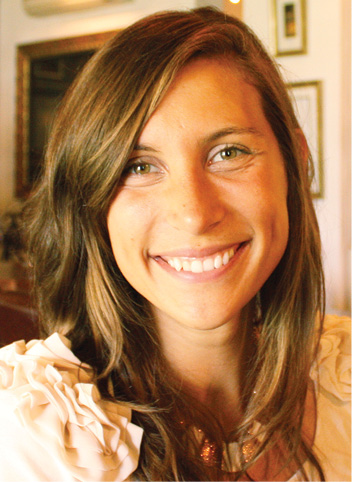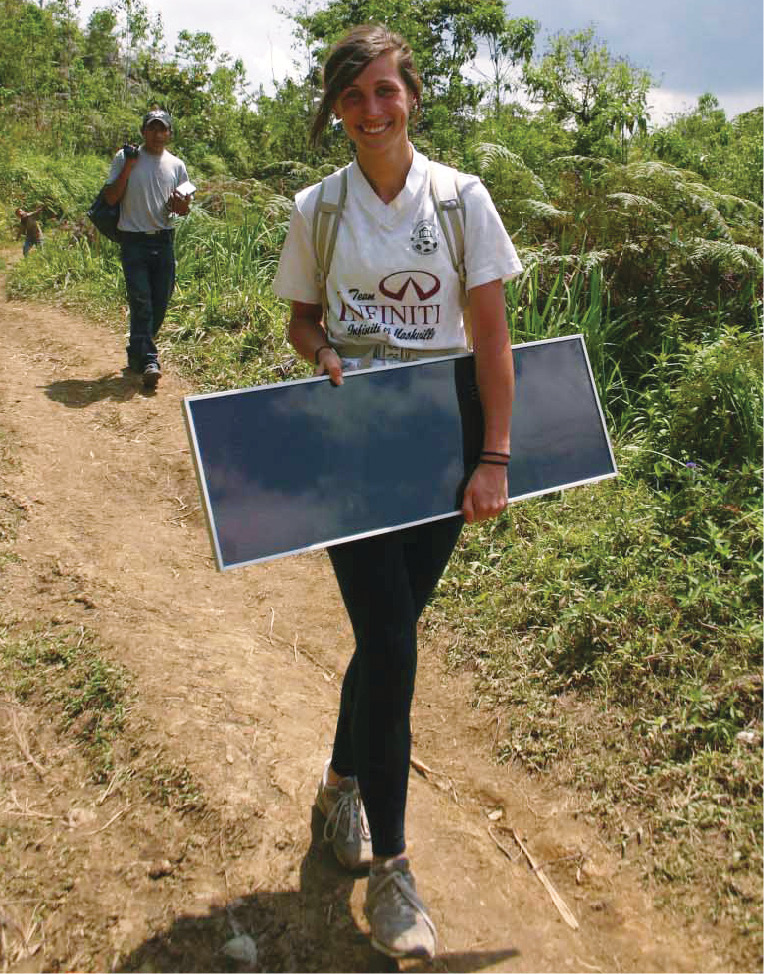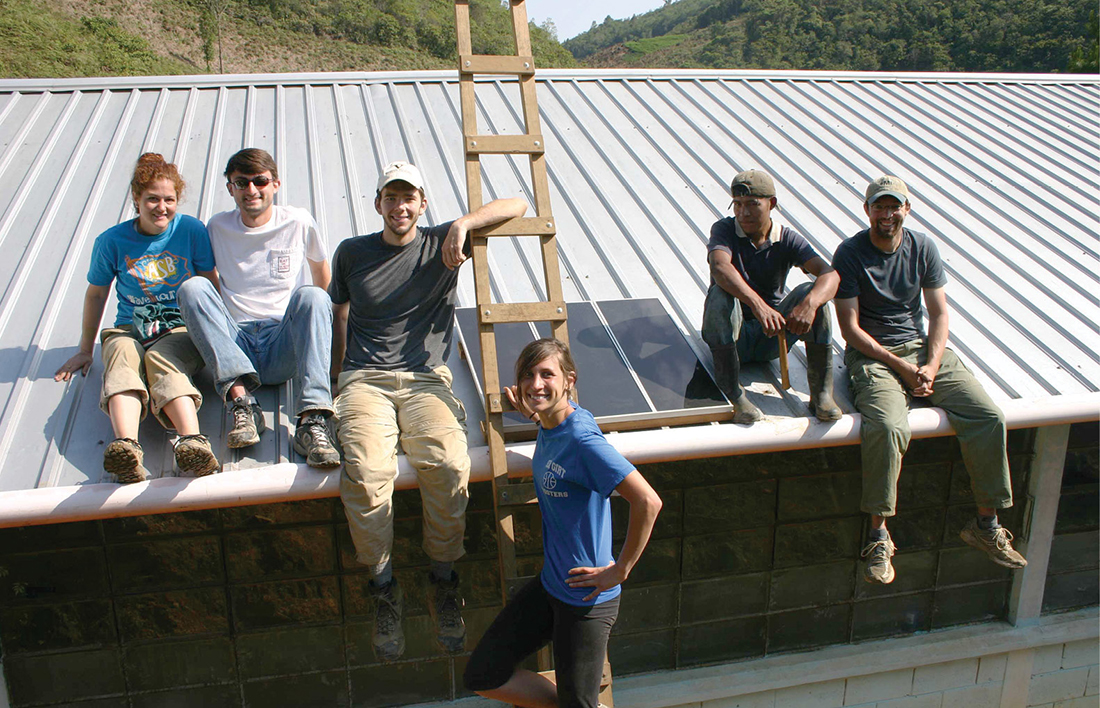
Leslie Labruto’s career illustrates how a young civil environmental engineer can accommodate both her heart’s leaning and her tangible talents.
Before she graduated from the School of Engineering with her bachelor’s degree in civil engineering in 2011, Labruto’s studies and service work had already taken her to Argentina, Peru and Guatemala. For her Senior Design Project, she created a solar/bike hybrid system that brought power for the first time to the rural community of Ulpan, Guatemala. Labruto also led a clean-water fundraising campaign to mark her 21st birthday by providing clean water for a community in Central Africa.
“Before entering Vanderbilt, I had never stepped foot in a developing country, though I had experiences abroad that sparked the ‘travel bug’ within me,” Labruto says. “Then when I began developing a tangible skill set at Vanderbilt through my studies as a civil engineer, I realized I could unite my love for engineering and my passion for exploring other cultures to solve global problems.” Labruto also picked up two minors: engineering management and energy and environmental systems.
Her work for the Clinton Foundation on the Climate Change Initiative (CCI)—helping to create clean energy solutions for countries across Africa and small island nations—has provided her best opportunities to make change happen. She went to work for CCI after earning her master’s at Imperial College in London.

“At the Clinton Foundation I was thrown in the deep end,” Labruto says. The CCI team works with countries around the world to create and deploy clean energy plans, including the Solar Park in South Africa, which will be a 5-gigawatt photovoltaic and concentrated solar power (CSP) development.
South Africa’s Solar Park will be the largest solar project in the world. “Currently faced with a 10-gigawatt power deficit, South Africa generates nearly 90 percent of its electricity from coal-fired power stations,” says Labruto, whose work on the Solar Park spanned design, technology mix and policy development.
Her CCI projects on small island nations utilized her clean-fuel engineering skills in very different energy environments. Labruto worked with the CCI team to replace costly diesel use with solar and other hybrid solutions. “As climate change accelerates, small island nations will suffer a disproportionate share of global consequences already occurring today,” explains Labruto, including rising sea levels, ocean acidification and increasing tropical storms. On these islands Labruto’s work has included development of a 5-megawatt waste-to-energy facility in the Maldives and deployment of rooftop solar in the Seychelles for large-scale energy consumers, domestic households, and small- to medium-sized enterprises.
Labruto’s habit of linking personal passion with professional choice is illustrated by her co-authorship of the white paper The Economics of Biophilia: Why Designing with Nature in Mind Makes Financial Sense, published by New York environmental consulting firm Terrapin Bright Green during her internship with the firm in 2012. Labruto’s master’s work at London’s Imperial College also involved global market transformation issues. Her thesis, Contrasting Perspectives on China’s Rare Earths Policies: Reframing the Debate through a Stakeholder Lens, was published in the Journal of Energy Policy.
In December 2013, Labruto concluded her work with CCI to take a job as an associate with Summit Partners in the equity investment firm’s Boston office, where she focuses on emerging companies in the energy and technology sectors.

As a Young Alumni Trustee on the Vanderbilt Board of Trust, Labruto plans to remain an aggressive advocate for recent grads. She shares this advice for job seekers:
“Network, network, network—with confidence! My mother always told me that fortune favors the bold, and this proverb could not be more applicable in any other context. I’ve learned that people love helping eager graduates, and opening a door through networking is the greatest way you can help yourself. Don’t be afraid to pick up the phone and call someone you’ve never spoken with before because, inevitably, your proactive approach in making that phone call will impress the heck out of that professional.
“I moved to South Africa without a job, without a direction, and nothing but $900 in my pocket. Talk about a risk! I identified some target global companies and cold-called the local CEOs. Most were taken aback that I had phoned in the first place, but every single one offered me the opportunity to interview despite no job vacancies listed. One interviewer said he could see me working in the NGO space as a technical engineer, and that contact connected me with CCI’s global director of clean energy.”
—REBECCA NEWTON
Watch how Labruto’s putting her civil engineering degree to work:
)
Learn more about Labruto’s environmental efforts.